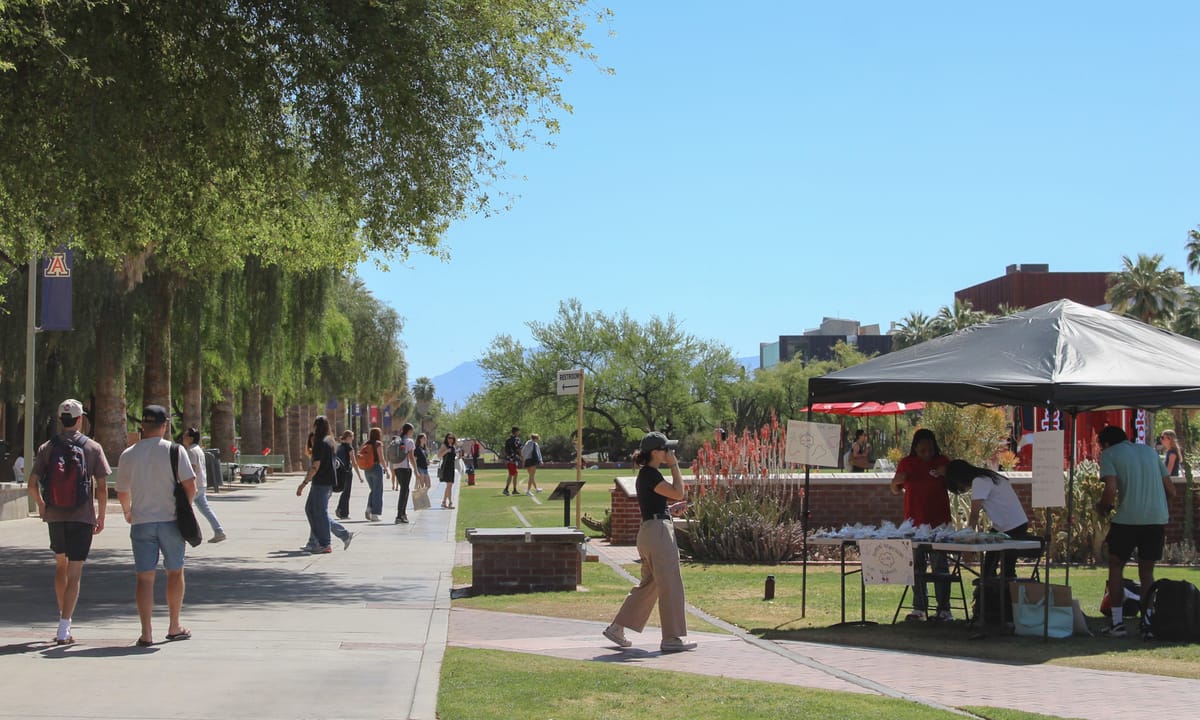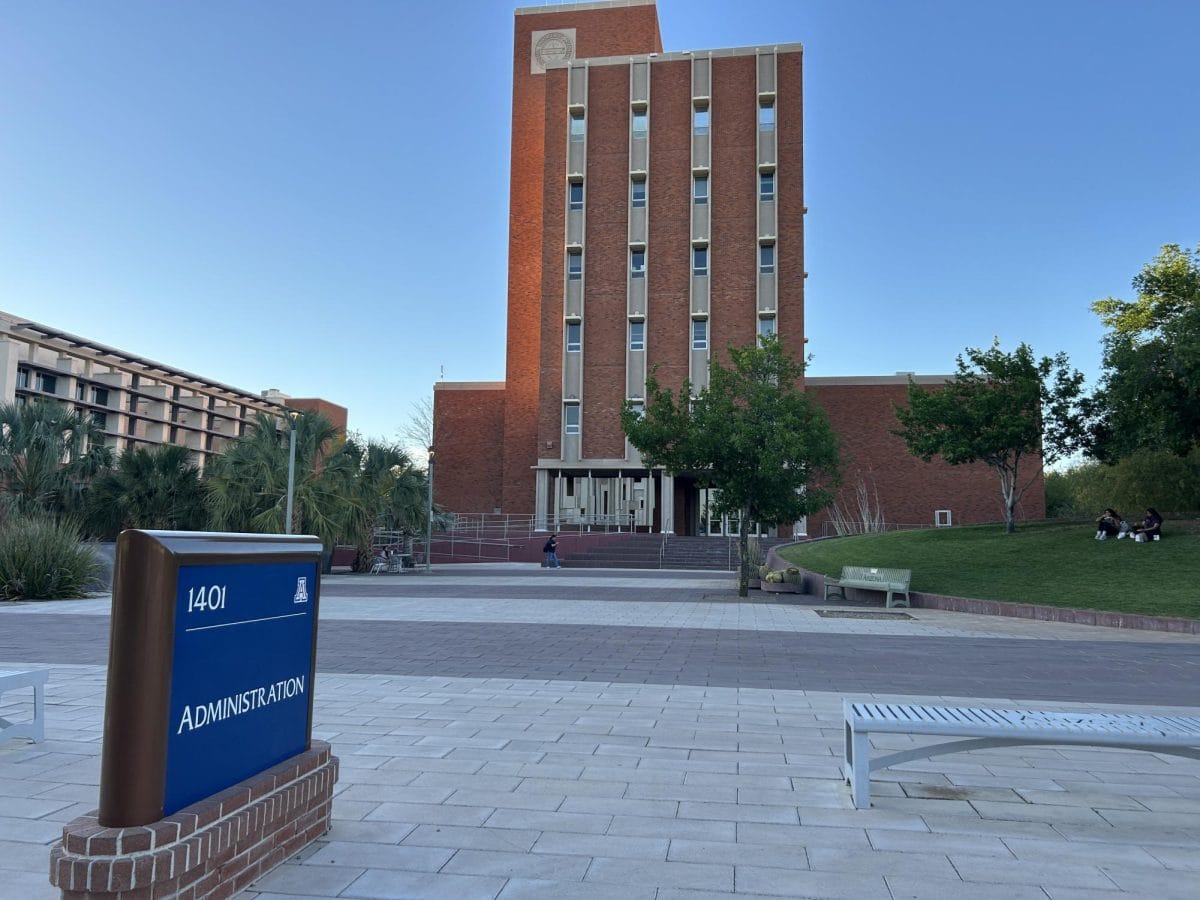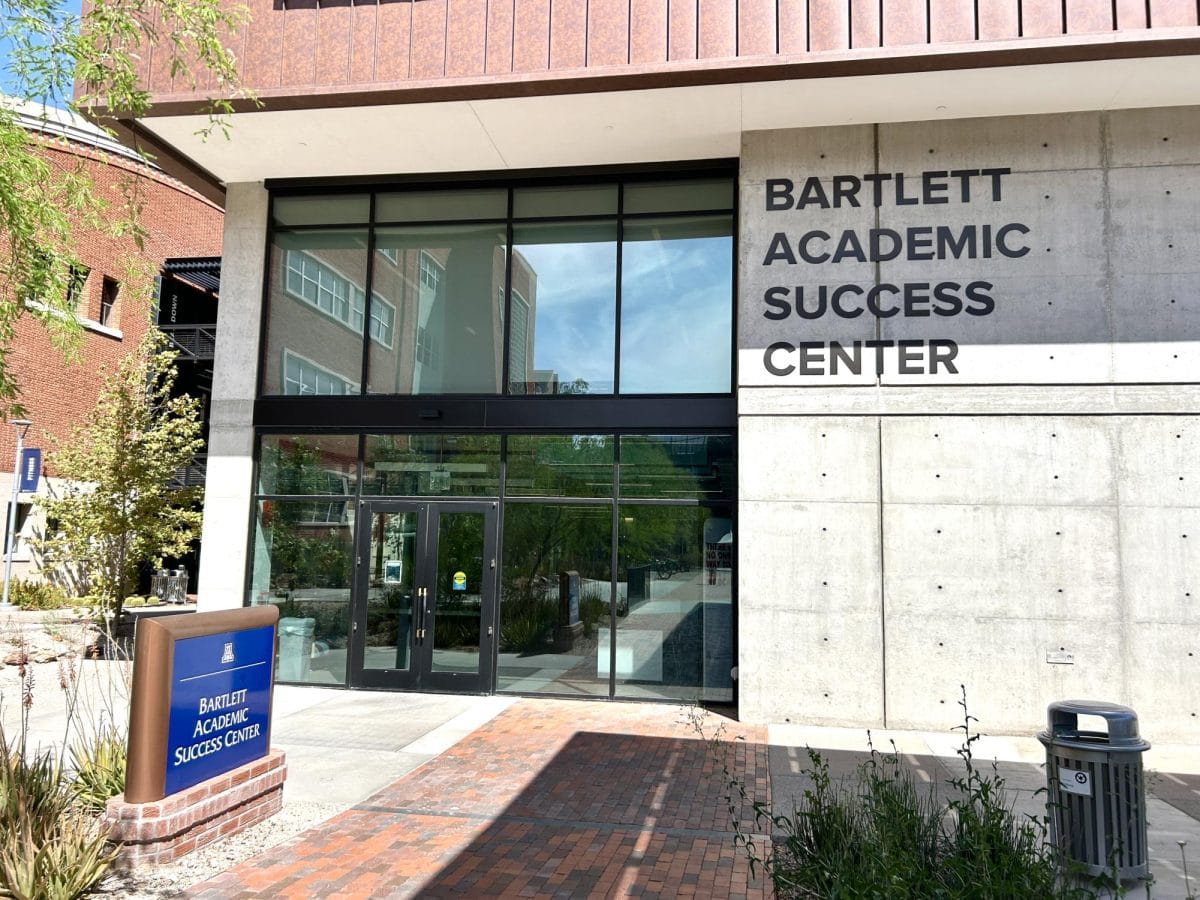UA students organize to defend Thrive, DEI Programs
University of Arizona students have formed a collective to protect the Thrive Center and its diversity programs from cuts prompted by recent federal executive orders.

Cruz Ramirez-Ramos / Arizona Sonoran News
A new collective organized by student staff at the University of Arizona Thrive Center is advocating for inclusion and diversity programs under threat in the current political climate.
Students Organized to Thrive is working to protect the Diversity, Equity and Inclusion and Student Success and Retention Innovation programs in the Thrive Center, which offers peer mentoring, financial wellness, summer programs and other support to incoming students, often first-generation or low-income.
Francisco Burke, a peer mentor with Thrive and a member of the student collective, said that while academic resources are readily available at the university, the focus of these at-risk programs is to help students feel connected on campus, which helps them excel.
Those programs are at risk under President Trump’s recent Executive Order 14173, Ending Illegal Discrimination and Restoring Merit-Based Opportunity. Signed on Jan. 21, it requires Diversity, Equity, Inclusion and Accessibility programs to be terminated and labels them as illegal. Under this order, the UA would be at risk of losing federal funding if not in compliance.
University leaders have expressed a willingness to comply with the new requirements.
In an update on April 7, Provost Ron Marx said the university has been reviewing DEIA-related activities and has been mandated to discontinue programs with “preferential treatment.”
UA President Suresh Garimella sent a letter on April 1 to Arizona Senate President Warren Petersen affirming that the UA is continuing actions to comply with the recent executive orders.
University spokesperson Mitch Zak said in a statement that the UA is working to comply with all laws, including those that affect its funding in the current political climate. But he added that it is “guided by the compassion and respect we have for all members of our university community.”

The university’s willingness to dismantle longstanding diversity and equity programs like those at the Thrive Center spurred staff to create SOT, Burke said.
It marks the first time representatives of the center have spoken out regarding a campuswide issue, said Roman, another member of the collective. He asked that only his first name be used out of fear of retaliation by school officials.
The group’s ultimate goal is to be heard by administrators and ensure that both staff and the students they serve get the support they deserve, he said.
On April 2, the group sent an open letter to Garimella, Marx and the president’s cabinet, expressing concern over recent decisions to remove resource centers and centralize the Thrive Center’s services. The letter also included student data and demographics to highlight the importance of the center and the students it serves.
According to the center’s presentation for the Student Services Fee — which allocates funds to aid student services through the Student Engagement Fee — students who participated in the center’s activities had a retention rate 10 percentage points higher than the campus as a whole: 97.8% compared with 87.8%.
SOT has not yet received any response from Garimella or university administration.
Burke said he is disappointed in the lack of communication between administration and resource centers. He said some students depend on Thrive programs to remain eligible for financial support through the Arizona Assurance program, an invite-only program providing academic and financial support to incoming UA students. The program includes yearly requirements such as participating in Thrive’s peer mentoring and Teach and Share services.
He is also concerned that those services could suffer if other resource centers are shut down or scaled back. He said Thrive is highly connected to other campus groups like Cultural Resource Centers.
Burke said he often points students to resource centers to build community — one of many things that will suffer at the university if those centers lose support.

Roman added that combining the many diversity and inclusion resources under one umbrella could also diminish their effectiveness.
“You can’t just combine seven different things into one and drop someone into the deep end and say ‘good luck,’” he said.
On April 17, Garimella sent an email with a draft of the university’s strategic imperatives. Some points include expanding student learning experiences, supporting student well-being and sense of belonging, and better utilization of the Student Success District.
The Student Success District is a collaborative effort between University Libraries, SSRI, and Student Engagement and Career Development to provide a connected space for student resources and academic success. This space includes the Main and Science-Engineering libraries, the Bear Down Building and the Bartlett Academic Success Center.
The draft also highlights the university’s role as a land-grant institution and the flagship for Arizona, stating, “As the world around us continues to change, our rootedness in place, space, and community will remain.”
Despite the promises in the email, Burke believes the administration is actively working to dismantle initiatives already accomplishing these goals.
He pointed to Feminists Organized to Resist, Create, and Empower and Pride Alliance, which operate out of Cultural Resource Centers, and Thrive, which is located in the heart of the Student Success District.
SOT plans to work with other organizations to continue pushing for these community spaces and resources to remain on campus, he said.
“You can take our four walls, but the community remains and they will hold you accountable,” he said.
Arizona Sonoran News is a news service of the University of Arizona School of Journalism.
Tucson Spotlight is a community-based newsroom that provides paid opportunities for students and rising journalists in Southern Arizona. Please support our work with a paid subscription.




